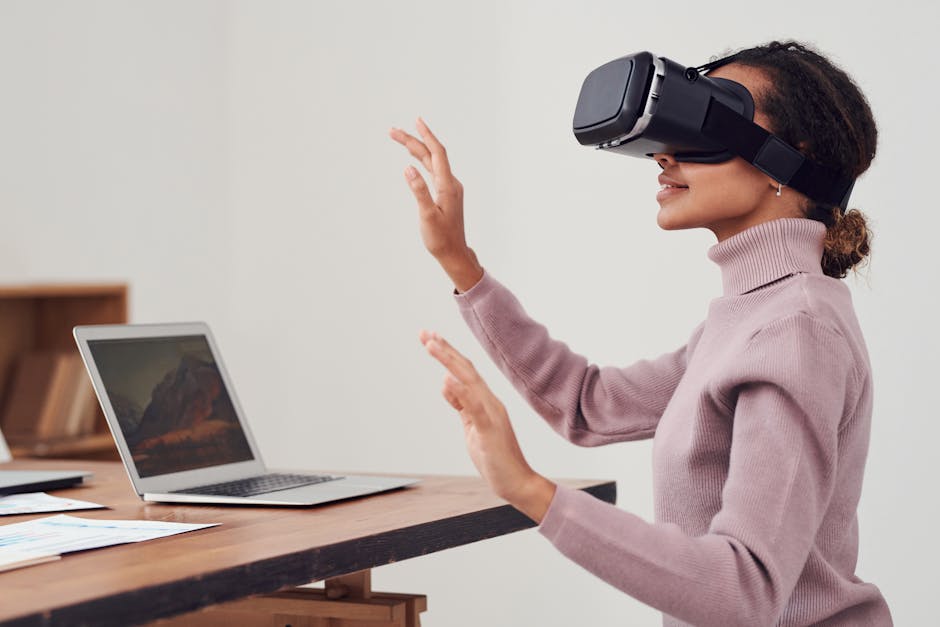TECH
The Economic Advantages of VR-Enhanced Corporate Training

Step into the future of corporate training with VR technology. Imagine a world where learning is immersive, engaging, and incredibly effective. Welcome to the era of VR-enhanced corporate training, where traditional methods are being revolutionized by cutting-edge virtual reality experiences. Join us as we explore the economic advantages of incorporating VR into your company’s training programs. It’s time to elevate your workforce development strategies and embrace the power of VR!
How VR Technology Improves Training Effectiveness
VR technology revolutionizes corporate training by offering immersive and interactive learning experiences. Employees can engage with realistic simulations, leading to better retention of information and practical skills. Through VR-enhanced training, individuals can practice complex procedures in a risk-free environment, boosting their confidence and proficiency.
With VR, trainees can learn at their own pace and repeat exercises until they master them. This personalized approach enhances comprehension and ensures that employees are adequately prepared for real-world scenarios. Moreover, VR allows for remote training sessions, enabling organizations to reach geographically dispersed teams without logistical challenges.
The ability to track performance metrics within VR programs provides valuable insights into individual progress and areas for improvement. Companies can analyze data to tailor training modules according to employee needs effectively. By harnessing the power of VR technology, businesses can elevate the effectiveness of their VR corporate training initiatives significantly.
Cost Savings and Efficiency
Virtual Reality (VR) technology has revolutionized the way corporate training is conducted, offering significant cost savings and efficiency benefits to organizations. With VR-enhanced training programs, companies can eliminate the need for expensive physical resources like classrooms and printed materials.
By providing immersive and interactive simulations, VR allows employees to practice real-life scenarios in a safe virtual environment. This hands-on experience enhances learning retention rates and reduces the time spent on traditional training methods.
Moreover, VR eliminates travel costs associated with bringing employees together for training sessions. Remote workers can participate in virtual training sessions from anywhere in the world, saving both time and money for the organization.
The efficiency of VR-enhanced corporate training is further highlighted by its ability to track employee progress and performance data in real-time. This valuable insight enables trainers to personalize learning experiences based on individual needs, ultimately leading to improved overall outcomes.
Incorporating VR technology into corporate training not only streamlines processes but also ensures that employees are better equipped with practical skills needed to excel in their roles. As more businesses recognize the cost-saving advantages of VR-enhanced training solutions, we can expect a widespread shift towards this innovative approach across industries.
Conclusion
The integration of VR technology into corporate training programs has proven to be a game-changer for businesses across various industries. The economic advantages of VR-enhanced corporate training are undeniable, offering cost savings, increased efficiency, and improved learning outcomes. As technology continues to advance and VR becomes more accessible, companies that embrace this innovative approach to training will undoubtedly gain a competitive edge in the ever-evolving business landscape. Embracing VR is not just a trend but a strategic investment toward future-proofing your workforce and maximizing productivity. Get ahead of the curve and unlock the full potential of your employees through immersive VR-enhanced corporate training platforms like Mazer.
